Learning Circle – Workshops
Thank you for believing in a stronger, more hopeful community.
United Way Learning Circle
United Way of the Coastal Empire is proud to offer continuous capacity-building support to nonprofits serving in our four-county service area. Our workshops provide valuable entry points and overviews of topics critical to the success of nonprofits, volunteers, and community members.
We offer multiple training opportunities:
- United Way Galaxy Digital Training
Date: January 30th, 12:00 PM – 1:00 PM (via Zoom)
Facilitator: Jennifer Chisholm, United Way Volunteer Coordinator
This session will explore how to leverage the Get Connected tool to recruit volunteers, manage events, and raise awareness for your nonprofit. Learn how to share volunteer opportunities, manage volunteer data, post events, and cross-promote your cause to increase engagement and outreach. - AI in Nonprofits
Date: February 25th, 12:00 PM – 1:00 PM (via Zoom)
Facilitators: Shawn Snyder & Shawn Johnson, Deloitte Consulting
Join experts from Deloitte Consulting to learn how artificial intelligence (AI) technologies can transform nonprofit operations, enhance service delivery, and increase community impact. The session includes a Q&A, where you can get expert advice on integrating AI into your organization. - Disability Etiquette For Positive Connections
Date: March 25th, 12:00 PM – 1:00 PM (via Zoom)
Facilitators: L.I.F.E (Living Independence for Everyone)
This workshop will focus on Disability Etiquette and how to foster a respectful, inclusive community for individuals with disabilities. Learn how to communicate and engage with people with disabilities in both professional and social settings. Promote inclusion, respect, and equal access.
How to Register:
To register, please complete the registration form. After submitting the form, you will receive a confirmation email, calendar invitation, and Zoom registration link for the selected workshop(s).
Register Today→
Previous Sessions→
Other Learning Opportunities
- Gulfstream Learning Series
This series features nonprofit trainers from the Georgia Center for Nonprofits. Stay tuned for upcoming sessions that will enhance your knowledge of nonprofit leadership and operations.
Register→
Learn More→
Previous Sessions→ - Young Leaders Board Readiness Program
This program is designed for young professionals interested in strengthening their board leadership skills and preparing for nonprofit board service.
Learn More→
Need Help?
If you have any questions or need assistance with registration, please reach out to:
Nola Johnson
Director, Community Investments
Phone: 912.651.7729
Email: [email protected]
If you have any questions about these programs and resources, please email [email protected].
Important Update:
The application process for the 2025-2026 Community Fund Grant will be conducted as a closed process.
The funds we raise are distributed to a network of highly-vetted local nonprofits – a process which engages dozens of community volunteers to help ensure funds are invested wisely and yield results that matter.
Once funded, United Way holds each of its nonprofit partners accountable to achieving specific outcomes. For further support, we offer regular workshops for organizational and program development, as well as training about our funding priorities and program evaluation process.
WHAT TYPES OF NONPROFIT PROGRAMS AND SERVICES ARE FUNDED BY UNITED WAY?
The organization’s services align to one or more of United Way of the Coastal Empire’s priority impact areas:
- Safety Net Programs that provide for basic human needs related to food, shelter, health, and safety,
and/or disaster response. - Upward Mobility Programs that create pathways of upward mobility within the community. Priority areas related to upward mobility include Quality, Affordable Childcare; Ready & Resilient Workforce; Financially Empowered Families; or Safe & Stable Housing programs.
WHAT QUALIFICATIONS ARE NECESSARY TO APPLY FOR UNITED WAY FUNDING?
To be considered for a program grant from United Way, nonprofit organizations must have a physical presence in our five-county service area and meet our funding eligibility criteria.
HOW DOES A NONPROFIT APPLY FOR UNITED WAY FUNDING?
United Way of the Coastal Empire invites eligible nonprofits serving Chatham, Bryan, Effingham, Liberty, and Long Counties to propose programs for funding consideration through its Community Fund. Interested organizations should review eligibility requirements and instructions.
HOW DOES UNITED WAY MAKE ITS GRANT FUNDING DECISIONS?
United Way Community Investments staff facilitates an outcome-based evaluation process that employs dozens of trained community volunteers to serve as grant evaluators, which is overseen by a standing committee of United Way’s Board of Directors. Decisions are based on the merit of organizational and program performance and the resources available for investment.
Important Update:
The application process for the 2025-2026 Community Fund Grant will be conducted as a closed process.
United Way 2024-2025 Funding Proposals
Letter of Intent (LOI)
(Process begins November 1, 2023)
United Way of the Coastal Empire invites eligible Georgia nonprofits serving Bryan, Chatham, Effingham, and Liberty counties to submit Letters of Inquiry (LOIs) for entry into its 2024/25 Community Fund grant process. LOIs are required only for programs that do not currently receive United Way of the Coastal Empire financial support.
LOIs should specifically explain how the proposed program provides safety net services to the most vulnerable individuals in our community, or provides a pathway for upward mobility.
- Safety Net Programs provide for basic human needs related to food, shelter, health and safety, and/or disaster response.
- Upward Mobility Programs should prioritize community needs in the following areas:
- Quality, Affordable Childcare: Programs providing access to childcare services for underserved communities and working families. Examples include but are not limited to programs that provide safe and affordable childcare services during working hours, expand access to the number of quality-rated childcare facilities in the community, and/or that develop the social, emotional and intellectual skills of children.
- Ready & Resilient Workforce: Programs helping individuals and youth gain the knowledge, skills and support to enter, remain and advance in the workplace. Examples include but are not limited to skill certification and job placement programs for adults, after-school, mentorship and career exploration programs for youth, and/or programs designed to help differently-abled individuals thrive in the workplace.
- Financially Empowered Families: Programs helping families to gain the knowledge, skills and support to improve their financial position and to overcome barriers to long-term financial security. Examples include but are not limited to programs that improve financial literacy, support savings and intergenerational wealth creation, and/or create conditions that allow families to become economically self-reliant.
- Safe & Stable Housing: Programs that expand access to safe and secure habitation within low-wealth communities. Examples include programs that expand the availability of affordable housing units within the community, maintain the stock of existing homes through repair assistance programs for the elderly or disabled and/or homelessness prevention programs.
Interested organizations should review eligibility criteria and instructions below and submit a 2- to 3-page Letter of Inquiry by 11:59 PM on Wednesday, November 22, 2023. Selected organizations will be invited to submit a full application for funding via United Way’s annual, volunteer-driven review process in January 2024.
Instructions for Letter of Inquiry
The Letter of Inquiry should be addressed to Lauren Branson, Vice President of Community Investments, and include the following information:
- A brief overview of the applicant nonprofit organization and its mission statement;
- Clearly define your financial request and how the funds will specifically be used;
- The community need that the applicant program seeks to address with a clear and compelling narrative describing how the proposed program aligns with United Way priority funding areas;
- A description of how the proposed program addresses the identified community need:
- Who is the target population to be served, and how will they be reached?
- What are the specific services/activities provided by the program?
- What is the length and depth of service that is provided to each participant?
- What other community organizations does the program partner or collaborate with?
- Program results over the prior three years citing quantitative evidence of the number of individuals served and/or program outcomes achieved;
- Expected sources of program revenue, including:
- Requested United Way funding amounts,
- Amounts expected from other grants/foundations
- Private and corporate donations
Proposals should reflect the organization’s anticipated service delivery within the 2024/25 United Way grant year (July 1, 2024 – June 30, 2025).
In addition to the Letter of Inquiry, please provide a PDF copy of your IRS 501c3 letter of determination, and the applicant organization’s most recently filed IRS Form 990.
All materials should be submitted by email to [email protected] by 11:59 PM on Wednesday, November 22, 2023. Incomplete or late LOIs will not be considered.
Support your grant request, program development, and communications with reliable data and statistics about health and human service needs in our community:
Census.gov →
Federal census data
Coastal Georgia Indicators Coalition →
Community dashboards and health, economic, education and quality of life indicators aligning with the Chatham County Blueprint strategic plan
County Health Rankings →
County-by-county health and related social indicators, data and rankings
Get Georgia Reading →
With a focus on factors that affect childhood literacy, data maps of academic, economic, health and social indicators by county, census tract, and school
Kids Count (Annie E. Casey Foundation) →
Social, health, and economic indicators of child well-being
Association of Fundraising Professionals
– Coastal Georgia →
Professional development, educational and networking
Candid Learning →
Online training and resources on proposal writing, fundraising, non-profit governance, management, and starting a non-profit; free e-newsletter, and more
Candid Overdrive →
Online library of free e-books on all aspects of non-profit management
Georgia Center for Nonprofits →
Education, training, and resources on all aspects of non-profit management
Grants.gov →
Current federal grant opportunities and online support
Nonprofit Finance Fund →
Resources for understanding and managing nonprofit finances
Philanthropy News Digest (PND by Candid) →
Free, weekly RFP Bulletin delivers current grant opportunities to your inbox
The grants listed here are facilitated by United Way of the Coastal Empire. Each grant has its own set of requirements and partnerships. Please read more about each one for detailed information.
Chatham County Hospital Authority (CCHA) Trust Grant →
Emergency Food and Shelter Program (EFSP) – Phase 41→
Georgia Center for Nonprofits – Funding and Resource Opportunities→

